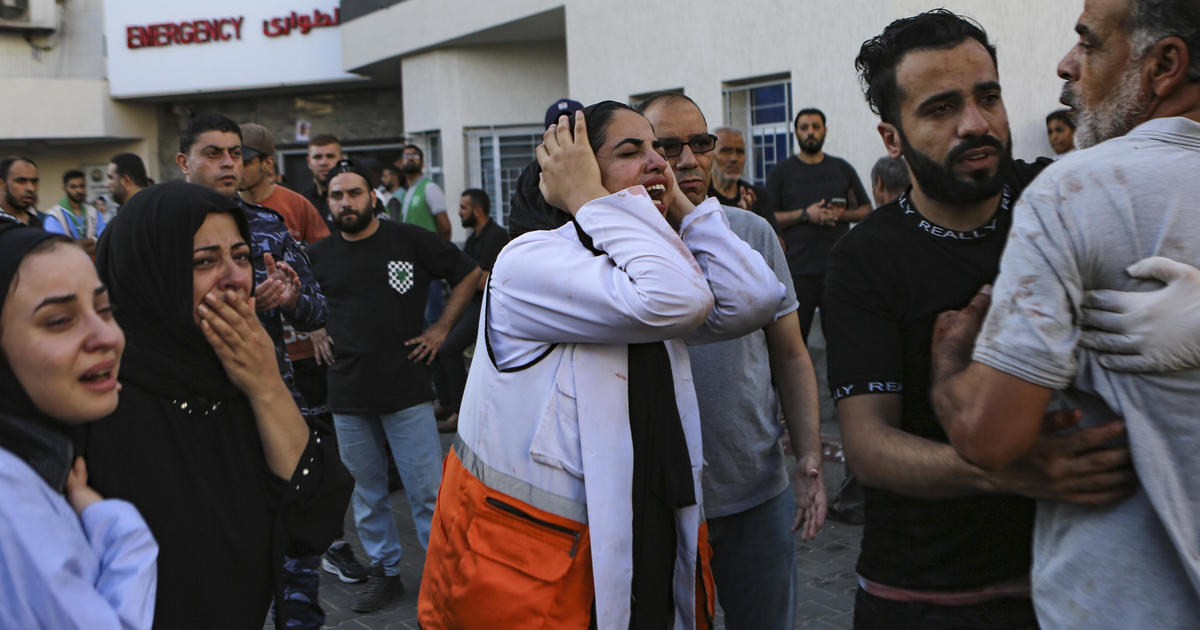
CHICAGO (CBS) — At least 500 Palestinian patients, healthcare workers, and people seeking shelter were killed in a blast at Al-Shifa Hospital on Tuesday. All hospitals in Gaza already have been in a dire situation as medical supplies and electricity have run dangerously low or, in some instances, have already run out.
Public health doctor and World Health Organization spokesperson Margaret Harris described the situation for Palestinian people in Gaza as, “what could only be called a living hell.”
“You don’t have anesthetic,” she said. “You may have to be sewing up a child. These doctors are telling us this, that they’re sewing up people on the floor with no anesthetic just to stop the bleeding just to keep them alive. So you are asking people whose desire is to help. His only desire is to save lives, to be doing it under the very worst circumstances and doing it a way they would never consider doing normally.”
Doctors at the second-largest hospital are using cellphones and flashlights to illuminate procedures, as fuel shortage prompts energy conversation, according to AP.
Dr. Harris said this humanitarian crisis doesn’t compare to anything the WHO has responded to before.
“I personally have been to many of the places that people would consider difficult, like Afghanistan and Ukraine, during the beginning of the war there, but this is different, and everybody’s saying this is different because no one is safe,” she said.
The World Health Organization has counted 51 attacks on healthcare organizations since October 7, when the Hamas militants launched a cross-border attack into Israel, killing more than 1,300 people. Since war was declared, over 3,700 Palestinians have been killed.
Harris said the WHO is “desperately waiting” for the Rafah Crossing to open to deliver life-saving aid. “Many of the things we do can’t be done, like simply bringing in supplies and helping and having humanitarian access that’s not been available,” she said.
The Rafah Crossing is the only Gaza border gate that does not lead into Israel. The WHO and other non-governmental organizations have had humanitarian aid ready to go at this crossing, including food, water, and fuel. President Joe Biden announced $100 million of humanitarian aid to Gaza and the West Bank on Wednesday.
As of Thursday night, that crossing has not been opened.
